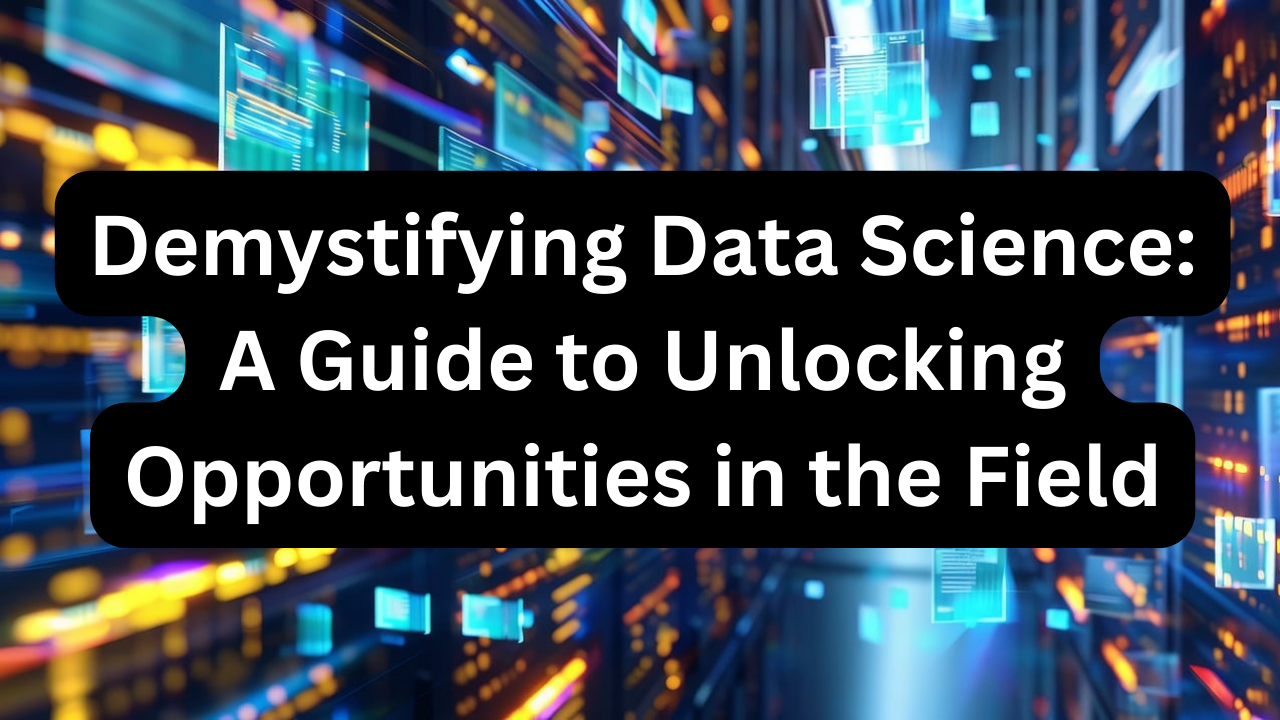What is Data Science?
Data science is a multidisciplinary field that combines techniques from statistics, mathematics, computer science, and domain knowledge to extract insights and knowledge from structured and unstructured data. It involves collecting, processing, analyzing, and interpreting data to make informed decisions and predictions.
Where is it Used?
Data science finds applications across various industries such as finance, healthcare, retail, marketing, manufacturing, and technology. It is used for tasks like predictive modeling, customer segmentation, fraud detection, recommendation systems, and process optimization.
Size of Opportunity
The demand for data scientists is on the rise as companies increasingly rely on data-driven insights to gain a competitive edge. According to industry reports, the global market for data science is expected to reach several billion dollars by the end of the decade.
Who can Become a Data Scientist? What Skills are Needed?
Anyone with a strong foundation in mathematics, statistics, and programming can pursue a career in data science. Essential skills include proficiency in programming languages like Python or R, knowledge of statistical techniques and machine learning algorithms, data visualization skills, and domain expertise in relevant fields.
How to Get Those Skills?
There are various paths to acquire data science skills, including formal education, online courses, bootcamps, and self-study. Universities offer degree programs in data science, while online platforms like Coursera, Udacity, and edX offer specialized courses and certifications. Additionally, participating in projects, competitions, and networking with professionals can enhance practical skills.
Expected Salary
The salary for data scientists varies depending on factors such as experience, location, industry, and level of expertise. Entry-level positions typically offer salaries ranging from $60,000 to $90,000 per year, while senior-level roles can command six-figure salaries or more.
Complexity Level
In terms of complexity, data science can be rated around 7 to 8 out of 10. While the foundational concepts are accessible, mastering advanced techniques and keeping up with rapid technological advancements require continuous learning and adaptation.
Short or Free Courses by Reputed Institutions
Several reputed institutions offer free or affordable courses in data science. For example, Harvard University offers free online courses on data science fundamentals through its Harvard Online Learning platform. Additionally, platforms like Kaggle and DataCamp offer a wealth of free resources, tutorials, and competitions for aspiring data scientists.
Free Advice
My advice to aspiring data scientists is to focus on building a strong foundation in mathematics, statistics, and programming. Practice solving real-world problems, work on projects, and stay updated with the latest developments in the field. Networking with professionals and seeking mentorship can also provide valuable guidance and opportunities.
Author’s Take
In conclusion, data science offers exciting opportunities for those interested in leveraging the power of data to drive innovation and solve complex problems. By acquiring the necessary skills and staying curious and adaptable, anyone can embark on a rewarding career journey in this dynamic field. So, don’t hesitate to dive in and explore the world of data science—it’s a journey worth pursuing!



